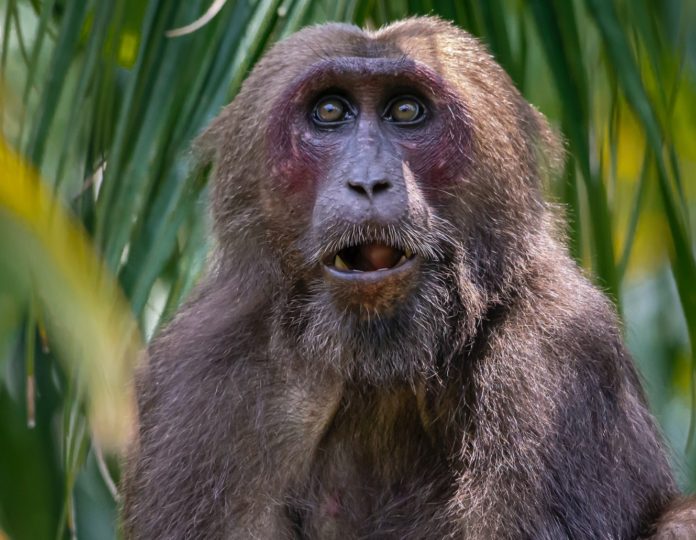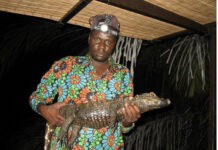By David Omurunga
Nakuru County, Kenya: Residents of Nakuru town west sub-county are up in arms because of baboons and monkeys that have caused havoc on their farms. They have urged the Kenya Wildlife Service to come up with ways of reducing the ever-increasing population that is now a thorny issue for them.
Geoffrey Kamau Nyaga a maize farmer from Barut village is one of the farmers affected, he complained that the number of baboons has grown to an extent that they are unbearable.
“In the seventies, it was rare to see baboons in our farmlands eating corn, but nowadays is an order of the day”, says Nyaga.
Mr. Nyaga who is a grandfather has been cultivating maize for over 5 decades. Still, the havoc caused by the baboons recently is uncalled for.” These primates from lake Nakuru, National park, jump out from the electric fence devouring my maize plantation “, added Nyaga.
This has had a negative impact as far as food production and food security are considered.” I have abandoned maize farming, for its no longer lucrative as it used to be earlier on” angry Nyaga added.
Rachel Wangechi a neighbor from the locality who once was a farmer, forego farming, for shopkeeping.
Mrs Wangechi says that she used to practice potato farming, in the late eighties, but after going what she calls hell and back, she decided to become a shopkeeper to at least heal , from the wounds she got from baboon menace.” I got tired of recording losses year in year out”, furious Wangechi.
Am not yet out of woods, added Wangechi.
Wangechi a grandmother says that the baboons changed tact, and they now frequent their residential houses to look for any edibles.
The attack on their farms has gradually affected food production, which has a diverse effect on their diet.
“They eat anything they find their way, from ugali, meat, drink tea, fruits just to name but a few”, added Wangechi.

However, the locals say, it’s risky for children who go to school on their own without being escorted, because these primate attacks them .says Joyce Wanjiru holding her grandson who is in pre-primary school.
They fear for the safety of their children, forcing them to skip classes.
Simeon Ombongi an elder has for a long time asked the KWS administration to act but in vain.
He has also requested the administration to visit them and take stock of the damages caused by the baboons and the monkeys.
The angry locals have however threatened to take the law into their own hands for what they say is neglect of the service.
According to kws statistics shows that wild animals contribute to 12 percent of the country’s Gross Domestic Product, GDP.
On the other wildlife and tourism creates over 300,000 job opportunities in Kenya.
Although the locals have nothing to smile about, they believe that even the statistic doesn’t matter to them.
“Amongst wild animals especially baboons and human beings, who are the most important, this one we will not entertain”, adds Wangechi.
More so, with Kenya Wildlife Conservation and Management Act 2013, which has classified primates such as baboons and monkeys that no compensation will be paid for losses caused by the species, has not been welcomed by the locals within and without.
However, KWS has been urged to put more emphasis on education to have a symbiotic relationship, in order to reduce human-wildlife conflict.














